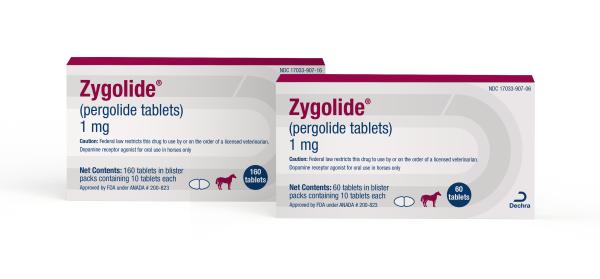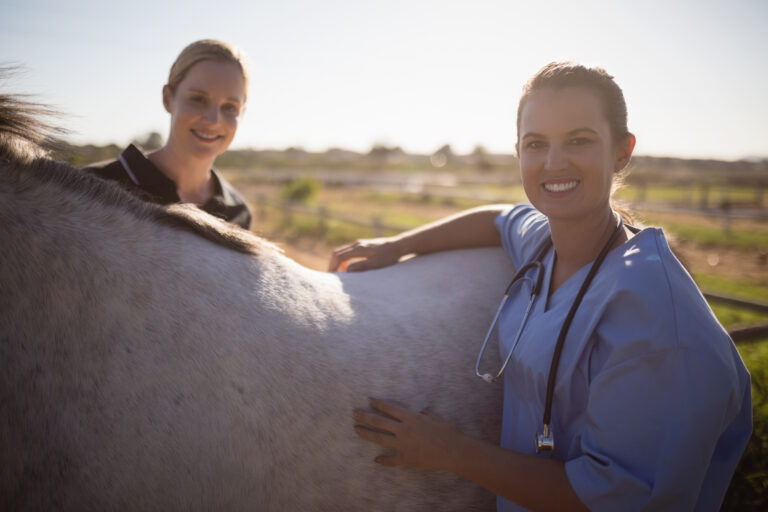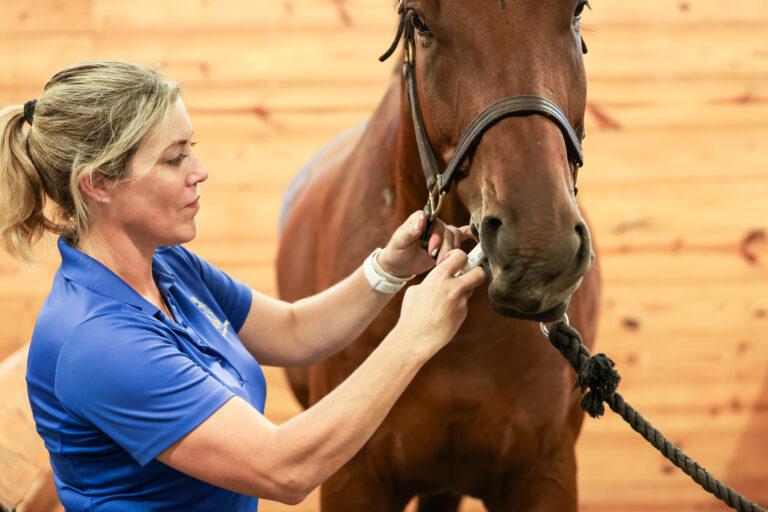
Merck Animal Health, known as MSD Animal Health outside the United States and Canada, a division of Merck & Co., Inc., Kenilworth, N.J., USA (NYSE:MRK), released findings of its comprehensive study conducted in collaboration with the American Veterinary Medical Association (AVMA) examining the wellbeing and mental health of U.S. veterinarians. Conducted in the fall of 2021, the wide-ranging Veterinary Wellbeing Study is the third survey since 2017 and the first since the COVID-19 pandemic began, with a goal to examine and bring critical awareness to the challenges impacting the veterinary profession, while highlighting the impact that the pandemic has on practitioners and staff. For the first time, the study includes responses from veterinary technicians and support staff and their perspectives on the challenges they are currently facing in work.
From hospital directors and practice owners, to veterinary technicians and administrative staff, the latest Wellbeing Study revealed the main barriers impacting those who practice veterinary medicine are the shortage of qualified staff and the fact that not all clinic or hospital employees have access to the same mental health tools as veterinarians. As part of Merck Animal Health’s ongoing commitment to identify the issues impacting veterinary wellbeing and provide solutions to support industry professionals, the company pledged to continue its support of AVMA’s Workplace Wellbeing program, “Train-the-Trainer” program, and relevant resources for veterinary technicians and support staff in the amount of $100,000 to help develop tools that advance mental health and wellbeing.
“Veterinary medicine is a profession that comes with the great satisfaction of caring for animals, but it also includes risk for mental and physical burnout as well as compassion fatigue,” said Joseph Hahn, DVM, executive director, U.S. Companion Animal and Equine Professional Services, Merck Animal Health. “Our third wellbeing study in partnership with the AVMA is key in defining the underlying turbulence that is increasing these stressors across the profession, while helping us identify the most impactful solutions to energize and strengthen mental health for current and future veterinarians, technicians and support staff.”
While 92% of respondents rated increased stress as one of their top mental health challenges, 88% cited student debt and concerns about the risk of suicide as leading stressors for veterinarians.
“With this new information and our $100,000 grant to develop necessary resources to promote mental health across the veterinary profession, Merck Animal Health and the entire veterinary community is optimistic about our ability to actively provide healthy opportunities in the most impactful way, while enhancing wellbeing within veterinary teams,” added Dr. Hahn.
Pandemic Challenges Had a Significant Impact on Veterinarian Support Staff
It is no surprise that the pandemic impacted many veterinarians and clinic staff, including veterinary technicians, veterinary assistants, practice managers and client service representatives. In fact, more than 90% of respondents reported that the shortage of qualified veterinary staff has been one of the biggest concerns throughout the pandemic, as was the challenge of providing veterinary services under the evolving pandemic and industry conditions (68%).
Adding to these concerns, 81% of staff and 67% of veterinarians faced challenges with their clinics being short-handed due to employees spending time away from work for illness or family care. In addition, both staff and veterinarians emphasized their anxieties surrounding the risk of increased exposure to COVID-19 (63% and 61%, respectively) and longer work hours (51% and 46%, respectively).
The percentage of veterinarians with serious psychological distress has increased to 9.7% in 2021 as measured by the Kessler Psychological Distress Scale, compared to 6.4% in 2019, due in large part to the ongoing pandemic. Among staff, the prevalence of serious psychological distress was nearly twice as high (18.1%). In addition, half of staff respondents (49.6%) and approximately one-third (30.5%) of veterinarians reported high levels of burnout.
“The past two years have been extremely challenging for veterinarians and their dedicated staff, and we are very grateful to everyone who contributed to this important study, which gives us a deeper look into what our colleagues are experiencing,” said Dr. Jose Arce, AVMA president. “The AVMA has dedicated itself to creating meaningful resources to help safeguard wellbeing, and this new research will further inform and support our vital, ongoing work in this critical area. We want our members to know that the AVMA hears them and is there to support them, whether it’s resources to help veterinarians manage their practices in this new environment, such as telehealth, or wellbeing resources to help veterinarians and their teams cope with stress.”
“With this new information and our $100,000 grant to develop necessary resources to promote mental health across the veterinary profession, including the veterinary support staff, Merck Animal Health and the entire veterinary community is optimistic in our ability to actively provide healthy opportunities in the most impactful way, while enhancing wellbeing within veterinary teams,” added Dr. Hahn.
Two-Thirds of Those who Reported Distress
Lack Healthy Stress Management Plans
Among respondents who reported distress in 2021, only one-third (33%) indicated that they had healthy methods for dealing with stress, compared to 81% of those who did not report distress. Serious psychological distress is more common in veterinarians who work excessive hours, compared to non-distressed veterinarians who reported spending more time on healthy, non-work activities, such as socializing with family and friends or participating in hobbies and activities.
“Now more than ever, it is clear that veterinary practitioners and their staffs play an essential role caring for the animals we love and maintaining the human-animal bond. And at Merck Animal Health, we have unconditional respect for veterinary professionals and their dedicated service, particularly during these unconventional times,” said Christine Royal, DVM, associate vice president, U.S. Companion Animal and Equine, Merck Animal Health. “As a company that supports veterinarians, including technicians, support staff and emerging professionals, we are honored to extend our partnership and wellbeing resources with AVMA. We are committed to protecting the health and welfare of veterinary professionals and ensuring we build a robust and engaged profession for the future, with opportunities such as scholarship funding, wellbeing webinars, networking opportunities and much more.”
Healthy Stress Management Solutions
for Veterinary Team Success
AVMA and Merck Animal Health are devoted to providing techniques and solutions that improve veterinary mental health and wellbeing, now and for future generations. Veterinarians and veterinary staff who responded to the Wellbeing Survey recommend tools, such as developing stress management plans for their team members; maintaining a healthy work climate that fosters strong mental health; and working with a financial planner to help manage student debt. Social activities that promote teamwork, networking opportunities for professional development and taking wellbeing classes also were recommended to improve wellness and aid in stress management among veterinary professionals. In addition, when asked what veterinary employers are doing to support wellbeing in the workplace, they suggested acknowledging and discussing mental health and wellbeing challenges that are in progress, and providing the appropriate support in return, including an Employee Assistance Program and health insurance that covers mental health treatment.
“We are pleased to partner with Merck Animal Health on this important work during a time of unprecedented challenge for health care professionals,” said Jen Brandt, PhD, director of Member Wellbeing & Diversity Initiatives for the AVMA. “Given this critical need, the AVMA continues to develop and prioritize resources dedicated to supporting the wellbeing of veterinarians and staff, including our new ‘Train-the-Trainer’ workshop that empowers veterinary professionals to become educators and share valuable strategies to promote workplace wellbeing, as well as a workplace wellbeing certificate program, assessment tools, podcasts, webinars, self-care strategies, and how and where to get help.”
To learn more about Merck Animal Health’s unconditional support of veterinary professionals and their mental wellbeing, visit www.merck-animal-health-usa.com/responsibility. For veterinary professionals looking to take advantage of the AVMA’s Workplace Wellbeing program, visit www.avma.org/resources-tools/wellbeing.
Study Methodology
The third online study was conducted in September and October 2021 by Brakke Consulting, Inc., among a nationally representative sample of 2,495 veterinarians in the U.S., both practitioners and non-practitioners, using standardized research methods. The objectives were to continue to track wellbeing and mental health of veterinarians and benchmark findings against physicians and the U.S. general population of employed adults.
In the 2021 study, practitioner respondents asked to pass along a special link to full-time staff across practice roles, including veterinary technicians, veterinary assistants, hospital practice managers, reception/client service representatives or other members of a veterinary clinic’s team. A total of 448 completed questionnaires were returned.
Data were weighted based on age, gender and region of the U.S. For the sample as a whole, the maximum margin of error is +/- 1.94% at 95% confidence level.
About AVMA
The AVMA, founded in 1863, is one of the oldest and largest veterinary medical organizations in the world, with more than 99,500 member veterinarians worldwide engaged in a wide variety of professional activities and dedicated to the art and science of veterinary medicine.
About Merck Animal Health
For over 130 years, Merck, known as MSD outside the United States and Canada, has been inventing for life, bringing forward medicines and vaccines for many of the world’s most challenging diseases. Merck Animal Health, a division of Merck & Co., Inc., Kenilworth, N.J., USA, is the global animal health business unit of Merck. Through its commitment to The Science of Healthier Animals®, Merck Animal Health offers veterinarians, farmers, pet owners and governments one of the widest ranges of veterinary pharmaceuticals, vaccines and health management solutions and services as well as an extensive suite of connected technology that includes identification, traceability and monitoring products. Merck Animal Health is dedicated to preserving and improving the health, well-being and performance of animals and the people who care for them. It invests extensively in dynamic and comprehensive R&D resources and a modern, global supply chain. Merck Animal Health is present in more than 50 countries, while its products are available in some 150 markets. For more information, visit www.merck-animal-health.com and connect with us on LinkedIn, Facebook, Twitter and Instagram.




